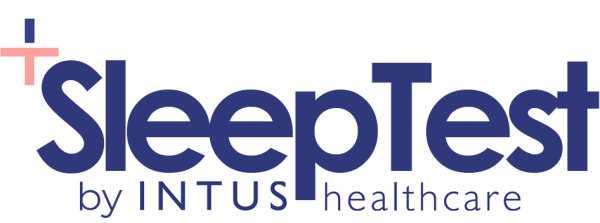Fact Checked
Intus Healthcare’s writers, customer service team, and sleep experts review and ensure this information is accurate.
Last updated on January 7th, 2025 at 03:58 pm
Let’s suppose you often feel exhausted during the day and struggle to concentrate at work. If you find yourself snoring loudly and waking up gasping for air, it is possible that you have obstructive sleep apnoea (OSA).
It’s important to note that OSA is associated with various other conditions, and individuals with OSA are less likely to seek help for these related conditions.
Conditions Linked with Sleep Apnoea
High Blood Pressure
Research suggests that reduced levels of oxygen in the blood can put strain on the heart, leading to an increased heart rate even during times of rest. As a result, individuals with high blood pressure may experience a worsening of their condition. Likewise, those with normally stable blood pressure levels may notice an elevation in both systolic and diastolic rates.
Type 2 Diabetes
According to research, it is estimated that as many as 80 percent of individuals diagnosed with type 2 diabetes may also experience obstructive sleep apnoea (OSA).
OSA is recognized as a risk factor for the condition. While the exact mechanisms are still not completely understood, it is known that disrupted sleep patterns can affect insulin production in the body.
Therefore, it is reasonable to assume a cause-and-effect relationship. This is why individuals classified as overweight should prioritize making lifestyle changes to avoid potential serious consequences.
Unexplained Weight Gain
It has been shown that overweight people are more likely to develop OSA(2). Excess fat tends to accumulate in the neck and throat area, which can make breathing more challenging during periods of rest.
Insufficient sleep can disrupt the hormones that regulate appetite. Additionally, it can cause daytime lethargy and a preference for rest over physical activity. This creates a potential cycle where these factors reinforce each other.
Individuals with obstructive sleep apnoea (OSA) may face challenges in maintaining an active lifestyle, which can contribute to weight gain. Conversely, insufficient sleep also increases the likelihood of weight gain. However, even losing as little as 10 percent of total body weight can lead to improvements in the symptoms associated with OSA(3).
Deviated Septum
Individuals with a deviated septum are at a higher risk of developing obstructive sleep apnoea (OSA) due to the nasal obstruction caused by the misalignment of the septum. When breathing becomes difficult through the nasal passages, the body naturally resorts to mouth breathing, leading to increased snoring and reduced sleep quality.
A deviated septum can also increase the likelihood of nasal congestion and other sinus infections, which can worsen Sleep Apnoea symptoms.
Heart Disease
It’s well-established that Obstructive Sleep Apnoea (OSA) disrupts the body’s ability to circulate oxygenated blood around the body. This causes considerable stress on the heart, causing it to work harder.
Frequent awakenings during the night are believed to be a significant factor in this equation as well. These disruptions can contribute to conditions like atrial fibrillation, an irregular heartbeat, and the early onset of heart disease. Individuals with OSA also face a significantly elevated risk of experiencing a heart attack when compared to those who have uninterrupted, restful sleep.
Related article: Sleep Apnoea and heart disease.
Cognitive Impairment
A common symptom of untreated OSA is memory loss and difficulty concentrating. This is due to the repeatedly broken sleep the individual experiences. While we sleep, the brain consolidates our memories, ensuring that we can recall them effectively during the day. Decreased sleep quality is linked to an elevated risk of cognitive decline and an increased likelihood of developing Alzheimer’s disease.
Liver Problems
Non-alcoholic fatty liver disease (NAFLD) has been associated with OSA. The exact relationship is not fully understood, but OSA may contribute to the development or progression of liver disease.
Asthma
There is a tentative link between asthma and OSA. As both are related to the narrowing of the bronchial tubes, those diagnosed with one of these conditions could very well suffer from the other. Sleep Apnoea can worsen asthma symptoms. The fragmented sleep and drops in oxygen levels associated with Sleep Apnoea may trigger asthma attacks or make asthma symptoms more severe.
It has also been shown that those who can reduce the severity of OSA could suffer from fewer asthma attacks.
Car Accidents and Similar Injuries
Those who are consistently tired throughout the day due to a lack of sleep are more likely to become involved in car accidents and similarly life-threatening situations. Individuals suffer from lower concentration levels and slower response times, so reacting to situations becomes difficult.
It is believed that mental processing may become impaired, potentially resulting in issues such as misjudging the distance between two vehicles or forgetting to secure the emergency brake of a forklift properly. The good news is that individuals who address OSA can prevent these and similar situations.
Acid Reflux Disease
Approximately 40%-60% of people with OSA also suffer from GERD, which can be extremely difficult to treat and result in extremely disruptive sleep patterns(4). It is believed that Obstructive Sleep Apnoea alters the pressure in the airways, which may result in the reflux of stomach acids into the oesophagus.
When acids enter the throat, they can trigger spasms in the vocal cords, leading to choking and breathing difficulties. Interestingly, it is worth noting that gastroesophageal reflux disease (GERD) can also contribute to OSA. Although further research is required, many scientists suggest a potential connection between these two conditions.
Treating one condition can sometimes lead to improvements in the other. For example, managing GERD with lifestyle changes, dietary modifications, or medications may help reduce acid reflux-related symptoms during sleep and improve sleep quality in individuals with Sleep Apnoea.
Conversely, treating Sleep Apnoea with therapies like continuous positive airway pressure (CPAP) can sometimes alleviate acid reflux symptoms by keeping the airway open and reducing the likelihood of aspiration.
Psychological Disorders
Sleep plays a crucial role in maintaining our mental health. It is widely known that inadequate sleep can result in feelings of tiredness and irritability during the day. However, OSA also affects the secretion of important hormones, including epinephrine, norepinephrine, serotonin, and melatonin.
These natural hormones aid in the healing process and have a significant impact on our emotional well-being.
Individuals with OSA are more prone to experiencing mental issues such as anxiety, depression, sadness, and a general lack of motivation. Consequently, addressing and treating OSA can be a vital step towards fostering a more positive mental attitude.
About Our Editorial Team
Danni is a degree-educated content writer passionate about helping those with Sleep Apnoea sleep better; she works closely with our clinical and customer care teams to ensure that each article is thoroughly researched and accurate.
Her writing aims to inform, support, and advise readers about Sleep Apnoea, helping to raise awareness and promote effective treatment options.
She has written many health-focused articles, reaching hundreds of readers annually, to help people sleep better and live healthier lives.
Lateisha King is an experienced Sleep Clinician with advanced training in polysomnography and respiratory health.
With over six years of experience, including at the prestigious Guy’s and St Thomas’ NHS Foundation Trust Hospital, she has conducted and reviewed more than 500 diagnostic sleep studies.
Her expertise in sleep science ensures that all articles align with the latest data and treatment protocols, providing readers with trustworthy and practical advice to improve their sleep health and overall well-being.
References:
- Pamidi, S. and Tasali, E. (2012) ‘Obstructive sleep apnea and type 2 diabetes: Is there a link?’, Frontiers in Neurology, 3. doi:10.3389/fneur.2012.00126. Available at: https://pubmed.ncbi.nlm.nih.gov/23015803/. Accessed: 12.10.23
- McFarlane, S.I. (2017) ‘Obstructive sleep apnea and obesity: Implications for public health’, Sleep Medicine and Disorders: International Journal, 1(4). doi:10.15406/smdij.2017.01.00019. Available at: https://www.ncbi.nlm.nih.gov/pmc/articles/PMC5836788/. Accessed: 12.10.23
- Pacheco , D. (2023) How weight affects sleep apnea, Sleep Foundation. Available at: https://www.sleepfoundation.org/sleep-apnea/weight-loss-and-sleep-apnea. Accessed: 12.10.23.
- Sabaté, J.M. et al. (2008) ‘Gastroesophageal reflux in patients with morbid obesity: A role of obstructive sleep apnea syndrome?’, Obesity Surgery, 18(11), pp. 1479–1484. doi:10.1007/s11695-008-9508-9. Available at https://pubmed.ncbi.nlm.nih.gov/18418659/. Accessed: 12.10.23
Published: May 21, 2019





